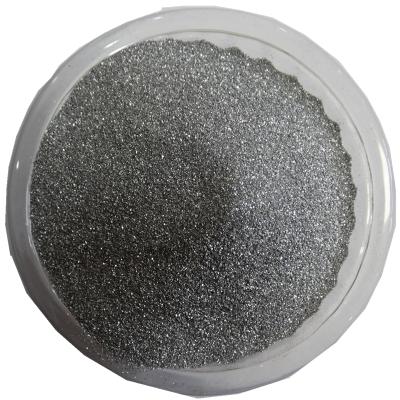**The Heavy Metal Truth About Your Orgain Protein Shake**
(Does Orgain Protein Powder Contain Heavy Metals)
You grab your Orgain protein powder, toss it in a smoothie, and gulp it down. It’s quick fuel, plant-powered, and tastes pretty good. But then a nagging thought hits: What else is in there? Could something invisible, maybe even dangerous, be hitching a ride? Specifically, heavy metals. That scary term pops up online about supplements. So, what’s the real story with Orgain? Let’s dig into the gritty details.
**What Exactly is Orgain Protein Powder?**
Orgain protein powder is a popular choice for folks looking for cleaner nutrition. Think athletes, busy parents, health enthusiasts. Its big draw? Being plant-based. Instead of whey from milk, Orgain uses things like peas, brown rice, chia seeds, and sometimes nuts. This mix aims to give you a complete protein profile without dairy, soy, or gluten – common triggers for some people. You’ll find it in big tubs or handy single-serve packets. People mix it with water, milk, or blend it into smoothies and oatmeal. The goal is simple: boost protein intake easily, support muscle recovery after workouts, or just keep you feeling full longer. It positions itself as a convenient, healthier option in a crowded market.
**Why Worry About Heavy Metals in Protein Powder?**
Heavy metals sound like something from a chemistry lab, not your breakfast. But names like lead, arsenic, cadmium, and mercury are real. They exist naturally in soil and water. Plants, the source of Orgain’s protein, absorb these metals as they grow. Farming practices and industrial pollution can make this worse. Why is this bad? Our bodies struggle to get rid of heavy metals. Over time, they build up. This can lead to serious health problems. Think nerve damage, organ strain, increased cancer risk, and developmental issues in kids. It’s scary stuff. Protein powders get extra scrutiny because they’re concentrated. You eat a lot of plant material condensed into one scoop. If those plants had metals, the powder might have higher levels than a single serving of veggies. People using protein powder daily face potential long-term exposure. That’s why the question isn’t just alarmist; it’s based on real science and genuine concern.
**How Does Orgain Handle Heavy Metal Testing?**
So, does Orgain just ignore this? No. They talk about testing. Like many supplement companies, Orgain relies on third-party labs. These independent labs check batches of their powder for heavy metals. They use precise equipment to detect tiny amounts. Orgain claims their products meet strict safety standards. They often mention California’s Prop 65 limits, some of the toughest in the US. But here’s the crucial part: transparency varies. While Orgain states they test, they don’t always make detailed, batch-specific results public for everyone to see instantly. Some brands do this readily. Others publish summaries or say they meet standards. You might need to contact customer service for specific reports. Independent groups like ConsumerLab or Clean Label Project have also tested Orgain. Their findings sometimes show detectable levels, but usually below safety thresholds. The takeaway? Testing happens, but the depth of public information isn’t always crystal clear. You often have to take their word or dig for reports.
**Practical Applications: Using Orgain Powder Safely**
Knowing the potential risks, how do you use Orgain smartly? First, don’t panic. If levels are within safe limits, occasional use is likely fine. But be mindful, especially if you rely on it heavily. Rotate your protein sources. Don’t use *only* Orgain every single day. Mix in other protein foods like eggs, chicken, fish, beans, or different supplement brands. This dilutes potential exposure from any single source. Pay attention to serving size. Stick to the recommended scoop. Doubling up doubles your intake of everything in it, including any trace metals. If you’re pregnant, breastfeeding, or giving it to kids, extra caution is wise. Consider talking to your doctor. They might suggest specific brands with published heavy metal reports or lower-risk sources. Remember, protein powder is a supplement, not a food replacement. Base your diet on whole foods first. Use the powder for convenience or to top up your protein when needed. This balanced approach reduces risk.
**Orgain Protein Powder Heavy Metal FAQs**
Let’s tackle the burning questions directly:
* **Does Orgain protein powder actually contain heavy metals?** Probably yes, at trace levels. Most plant-based foods and supplements do because metals are in the soil. The critical question is *how much* and if it’s safe.
* **Is Orgain protein powder safe then?** Based on available testing (theirs and independent), Orgain powders generally contain heavy metal levels below established safety limits like Prop 65 or FDA guidelines. This suggests they are safe for consumption *within recommended servings*.
* **How does Orgain compare to other brands?** Independent tests (like Clean Label Project) sometimes rank Orgain better than many competitors, especially conventional whey proteins. However, some dedicated “clean” brands might test even lower. It’s not always the absolute best, but often better than average.
* **Should I stop using Orgain?** Not necessarily. If you like it and use it moderately, the risk appears low based on current data. But if you consume large amounts daily, or are in a sensitive group (like pregnancy), consider diversifying your protein sources or seeking brands with fully transparent, published results.
(Does Orgain Protein Powder Contain Heavy Metals)
* **Can I completely avoid heavy metals in protein powder?** It’s nearly impossible. Trace amounts are unavoidable due to environmental factors. The aim is to choose brands that rigorously test and keep levels significantly below safety thresholds. Focus on minimizing exposure, not expecting zero.
Inquiry us
if you want to want to know more, please feel free to contact us. (nanotrun@yahoo.com)


